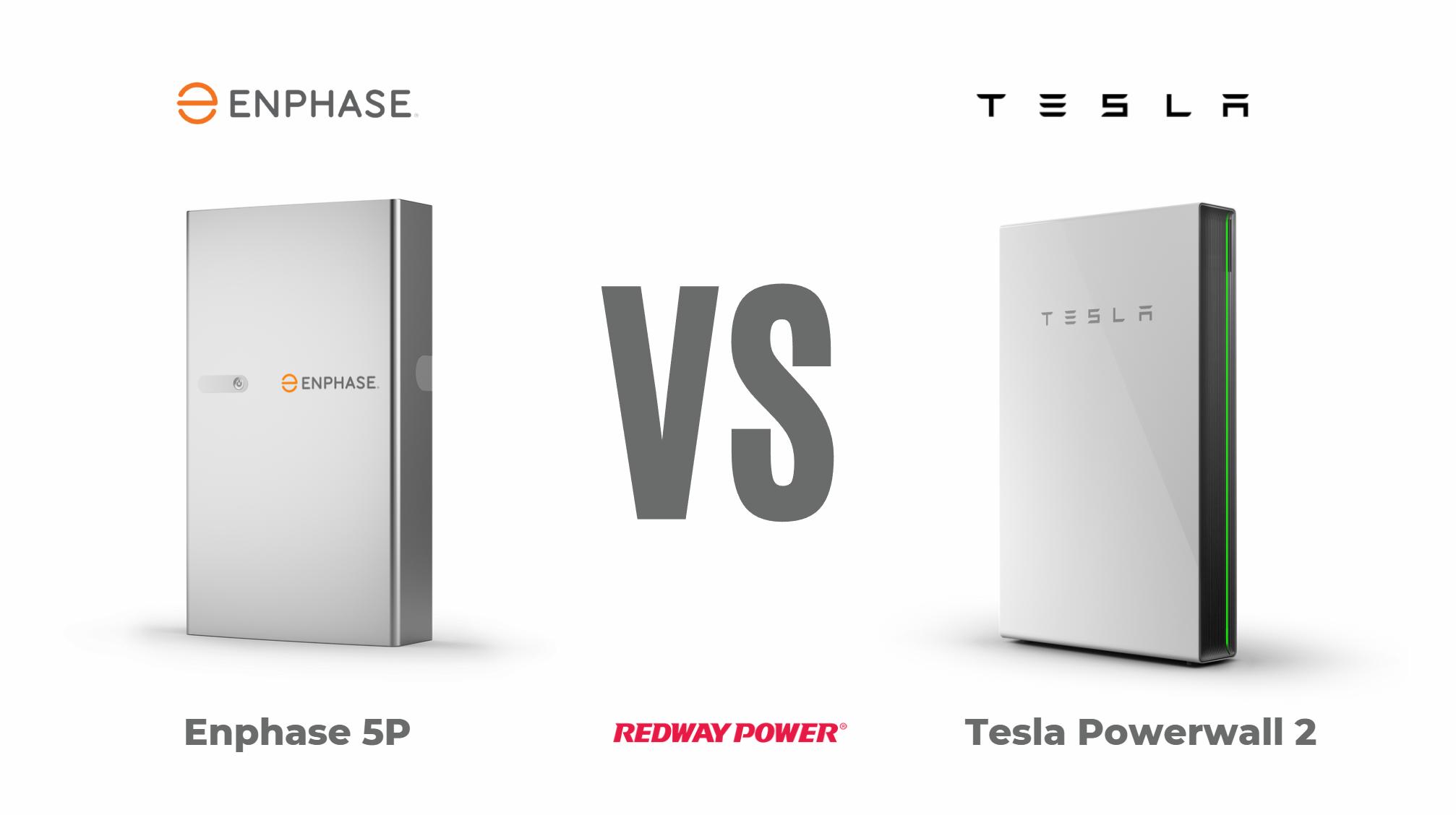When comparing solar energy storage solutions, the Enphase Battery and Tesla Powerwall 2 stand out as two leading options. Both offer unique features, but understanding their differences in capacity, installation, warranty, technology, and cost can help homeowners make informed decisions about their energy needs.
What is the capacity difference between Enphase and Tesla batteries?
The Tesla Powerwall 2 has a larger storage capacity of 13.5 kWh compared to the Enphase Battery’s maximum capacity of 10.08 kWh. This means that Powerwall can store more energy, making it suitable for larger homes or higher energy consumption needs.
| Battery Model | Capacity (kWh) |
|---|---|
| Tesla Powerwall 2 | 13.5 |
| Enphase Battery | 10.08 |
How do installation requirements compare for Enphase and Tesla?
Installation requirements vary significantly between the two systems. The Tesla Powerwall typically requires a specific inverter and a more complex installation process, often necessitating professional assistance. In contrast, the Enphase Battery features a modular design that allows for easier integration with existing solar systems, particularly those using Enphase microinverters.
| Installation Requirements | Tesla Powerwall 2 | Enphase Battery |
|---|---|---|
| Inverter Requirement | Specific inverter needed | Compatible with existing systems |
| Installation Complexity | More complex | Modular, easier integration |
What are the warranty terms for Enphase and Tesla batteries?
Both batteries come with substantial warranties, but there are differences in coverage. The Tesla Powerwall has a 10-year warranty covering 70% of its capacity at that time. The Enphase Battery offers a longer warranty period of up to 15 years with a similar capacity guarantee, providing added peace of mind for homeowners.
| Warranty Comparison | Tesla Powerwall 2 | Enphase Battery |
|---|---|---|
| Warranty Duration | 10 years | 15 years |
| Capacity Guarantee | 70% after warranty period | 70% after warranty period |
How do the technologies differ between Enphase and Tesla?
The primary technological difference lies in battery chemistry. The Tesla Powerwall uses lithium-ion technology, which is known for its high energy density but can pose risks such as thermal runaway. In contrast, the Enphase Battery utilizes lithium iron phosphate (LiFePO4), which is considered safer due to its thermal stability and lower risk of fire.
| Technology Comparison | Tesla Powerwall | Enphase Battery |
|---|---|---|
| Chemistry | Lithium-ion | Lithium iron phosphate (LiFePO4) |
| Safety | Higher risk of thermal runaway | Safer with lower risk |
What are the cost considerations for Enphase vs. Tesla?
Cost can be a significant factor when choosing between these two battery systems. The initial purchase price of the Tesla Powerwall is generally higher than that of the Enphase Battery; however, when considering long-term savings through efficiency and energy management, homeowners may find different value propositions based on their specific needs.
| Cost Comparison | Tesla Powerwall | Enphase Battery |
|---|---|---|
| Initial Cost | Generally higher | Typically lower |
| Cost per kWh | Higher upfront investment | More cost-effective per kWh |
Buy Wholesale Battery Tips
For businesses looking to purchase wholesale lithium or lead-acid batteries, Redway Battery is an excellent choice due to its extensive experience in OEM orders and custom solutions. To make OEM orders from a reliable manufacturer like Redway Battery:
- Identify your specific requirements (capacity, voltage).
- Contact Redway’s sales team with your specifications.
- Review their proposed solutions and pricing.
- Approve samples before mass production begins.
Industrial News
The demand for solar energy storage solutions continues to rise as homeowners seek sustainable alternatives to traditional power sources. Recent advancements in battery technology have led to improved efficiency and safety features in products like the Tesla Powerwall and Enphase Battery, making them increasingly appealing to consumers.
Enphase Battery 5P VS Tesla Powerwall 3
Redway Expert Views
“Choosing between battery systems like the Enphase Battery and Tesla Powerwall requires careful consideration of your specific energy needs,” states an expert at Redway Battery. “Both offer unique advantages that can significantly enhance energy independence.”
FAQ Section
- Which battery has a higher capacity?
The Tesla Powerwall 2 has a higher capacity at 13.5 kWh compared to the Enphase Battery’s maximum of 10.08 kWh. - What is the warranty period for each battery?
Tesla offers a 10-year warranty while Enphase provides a longer warranty of up to 15 years. - How do installation processes differ?
Tesla requires specific inverter setups and more complex installations; Enphase offers easier integration with existing solar systems. - What type of battery chemistry do they use?
Tesla uses lithium-ion technology; Enphase utilizes lithium iron phosphate (LiFePO4), which is generally considered safer.




